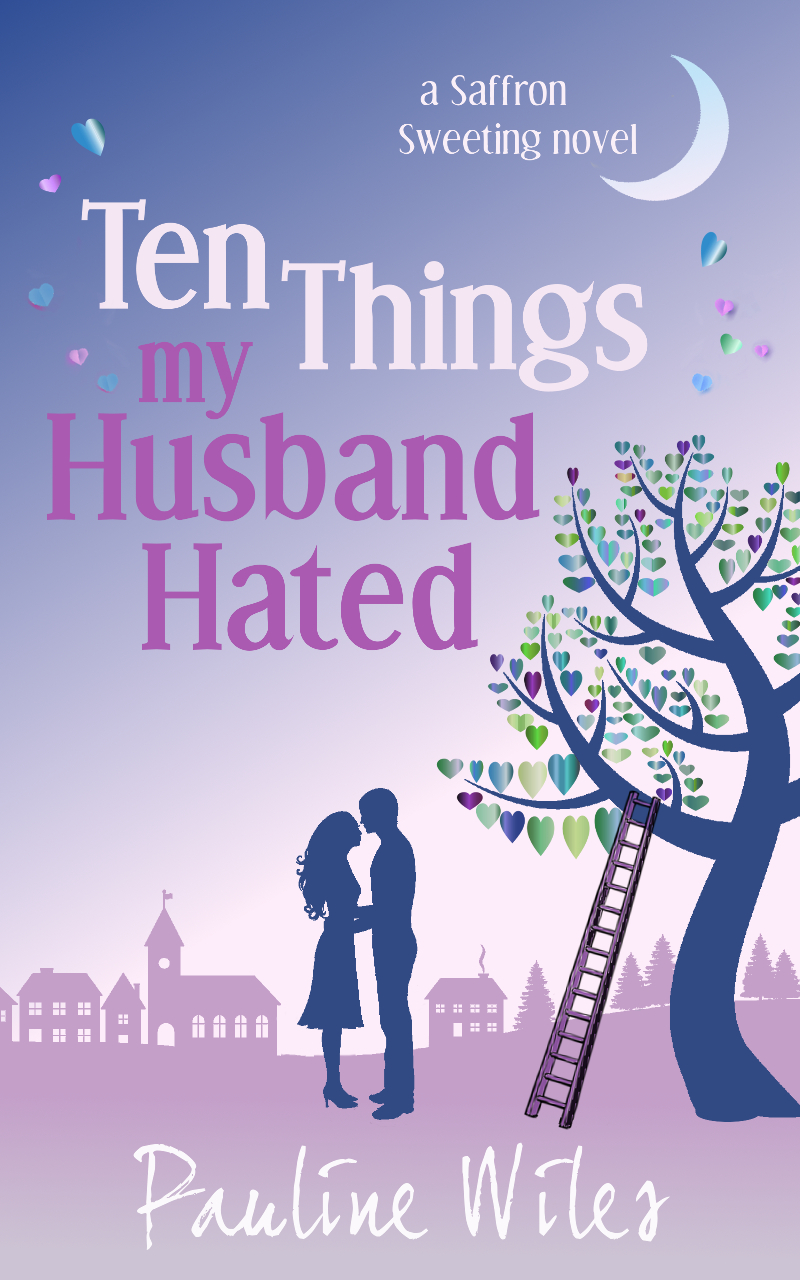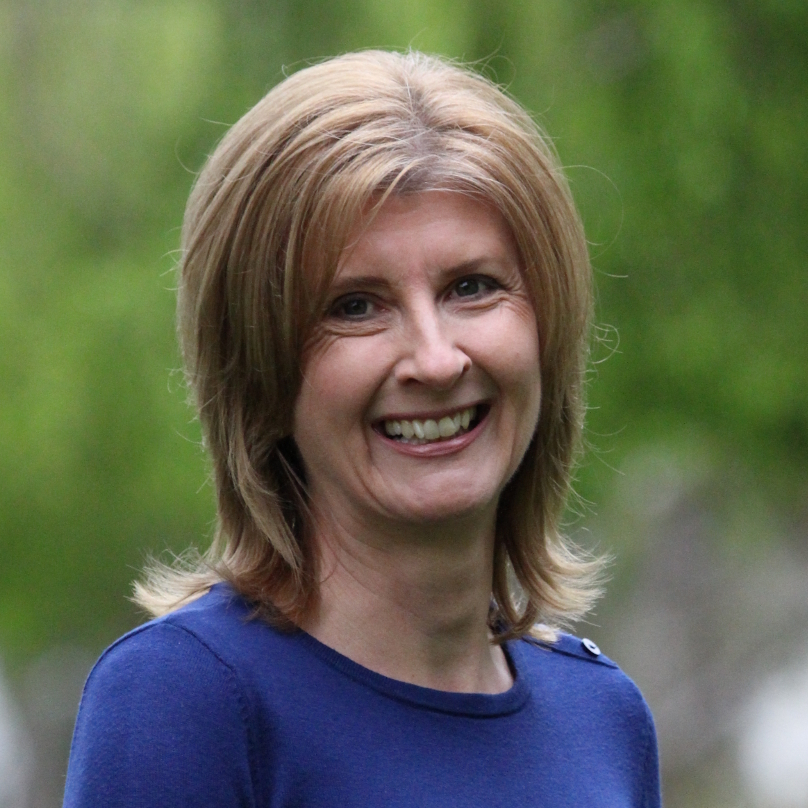
TG: Were you a risk-taker or world-traveller before emigrating from the United Kingdom to the United States, or was this a huge leap of faith?
PW: I definitely didn’t consider myself a big risk-taker, although I wasn’t the type of person to sit still and complain, either. As for world travel, I worked for British Airways for several years but in that time only saw a tiny fraction of the world. It did mean, however, that I’d been to San Francisco twice: once as a tourist, and once to view it through the lens of relocation.
TG: How long have you lived in the US? How do you feel about life in a foreign land, or do you even feel foreign?
PW: I moved from London to northern California in 2004. My husband was offered a tempting work opportunity, and since I was miserable in my job at the time, leaving the country seemed like a splendid excuse for handing in my notice. With hindsight, that was a crazy notion and I’m incredibly lucky it didn’t backfire. Yes, I do feel somewhat foreign, but the San Francisco Bay Area has people from all backgrounds and if anything my accent has helped, not hindered me. I’ve got fairly good at spotting when something I’ve said doesn’t translate, which still happens after 15 years.
TG: How long did you initially plan to be away from England?
PW: Permanently. I shipped the piano so that says it all really.
TG: When did you make the decision to apply for US citizenship and was that difficult?
PW: I applied as soon as I was eligible [five years after receiving permanent resident status] as we wanted to buy a home with security. The decision was an easy one. If I had been required to give up UK citizenship in order to “join the other side”, the issue would have been far tougher. I’m not sure I’d have taken that kind of leap.
TG: Do you feel you could ever return to the UK permanently?
PW: My husband has made it clear he’ll never return! But I’m settled and happy in California too. I’d like to be able to maintain my twice-yearly visits [to England] though.
TG: When you say you’re going home, where do you mean? If it’s the US, was there a moment when you felt the ‘switch’?
PW: It does mean the US, yes, although I can’t be sure of the moment that switch came. Probably fairly early. I’ve always loved interior design so as soon as I can “nest” in a place and call it mine, I start to feel settled. Buying a home in California was hugely exciting. I think a big part also was being here alongside my husband. Home is where your soulmate is, perhaps?
TG: Any regrets about leaving the UK?
PW: I wish I’d travelled in Europe more before moving to the US. It’s now an expensive and tiring proposition, whereas it’s quick and cheap from the UK.
TG: Do you ever experience homesickness, or hireth, as I do?
PW: When I wrote Saving Saffron Sweeting I was definitely processing some homesickness: the book was thinly disguised therapy for me. But I’m lucky that I genuinely love living here (in California), and being able to visit Britain twice a year is very fortunate. I do wish it wasn’t so draining to jump on a plane to see family, and if I ever hit the mega-bestseller list I might consider a small home in both countries. But I’ve grown enormously as an individual during my time here. I’m not sure, in England, I would have aspired to run marathons, or publish books. It’s hard to know if those adventures have been encouraged by the innovative culture of where I live now. It’s possible, of course, that they’d have happened anyway, but I suspect not.
TG: Three things you miss about the UK. Three things you don’t!
PW: Three things I miss: bacon, John Lewis (a British department store), fireworks night (an annual celebration commemorating the thwarted 1605 attempt to blow up the Houses of Parliament). Three things I don’t miss: manual (stick shift) cars, gloomy skies all winter, lousy plumbing.
TG: In your novels, you make Saffron Sweeting feel so real I want to visit it! How do you keep England fresh in your writing when you’ve lived away for many years?
PW: I visit England about twice a year and I try hard to notice the details which help create the sense of place in my novels. When I lived there, I wasn’t especially observant of things like plants or birdsong, so now I make more effort. And I’m constantly looking up things like what time it gets light in June, or dark in November. I haven’t yet been cheeky enough to deduct my trips to English tea shops from my taxes, but they feel like especially vital research!
TG: Would you have to change your mindset to write about a fictional US village? Have you ever looked back and realized you unintentionally injected America into something you wrote?
PW: I can’t yet imagine feeling qualified to write about an American village. There are so many details in place, character and dialogue that would be easy to get wrong. I still worry that the American characters in my books don’t sound right. Everyone knows about the most common differences in words and spellings, but some things are far more subtle. For example, an American would probably glance out the window, whereas a Brit would glance out of it. I employ a British proofreader for my novels so she can catch tiny slips like that, which I’ve now started to make.
TG: Some of your characters look to settle in new locations, some return to old haunts. How much of your own adjustments to living in the US are reflected in your writings?
PW: My adjustments to living in the US don’t feed much into the novels, but the things I notice when I now return to Britain as a relative outsider definitely do. In the first novel, when Grace gives advice to the village pub keeper and bed & breakfast owner about customer service, those are based on direct observations. I will say, though, in the 15 years I’ve been away, it’s become much easier to get a glass of tap water with a meal in England, or to swap crisps for a side salad, without being treated strangely!
TG: Will you ever write about a character who relocates from the UK to the US?
PW: Potentially … but at present my audience is highly appreciative of a British setting. So I’ll stick with Saffron Sweeting for at least the next book, probably more. I have far more American readers than British and I’ve deliberately played up the aspects of an English village which make for an attractive travel destination, if only vicariously.
Thank you, Pauline. I can testify to Saffron Sweeting being an ‘attractive travel destination’! The Saffron Sweeting novels stand alone, so you can start anywhere in the series. Here’s the link in the US for purchasing Ten Things My Husband Hated, out now in paperback and ebook formats: https://www.amazon.com/dp/B07WHZKQ1M/?tag=paulwile-20

Pauline is the author of Indie With Ease, a helpful resource for the indie author. (It even includes some advice from me!) She also designs websites for authors, promoting user-friendly, yet polished, social media platforms. See links below for more details about her Simple, stylish websites for writers and authors:



What a lovely time we had at Glastonbury! I’m so glad we could get together, and many, many thanks for this feature.
I look forward to meeting again soon for some ‘vital research’ at a tea shop! Wishing you every success with ‘Ten Things My Husband Hated’.